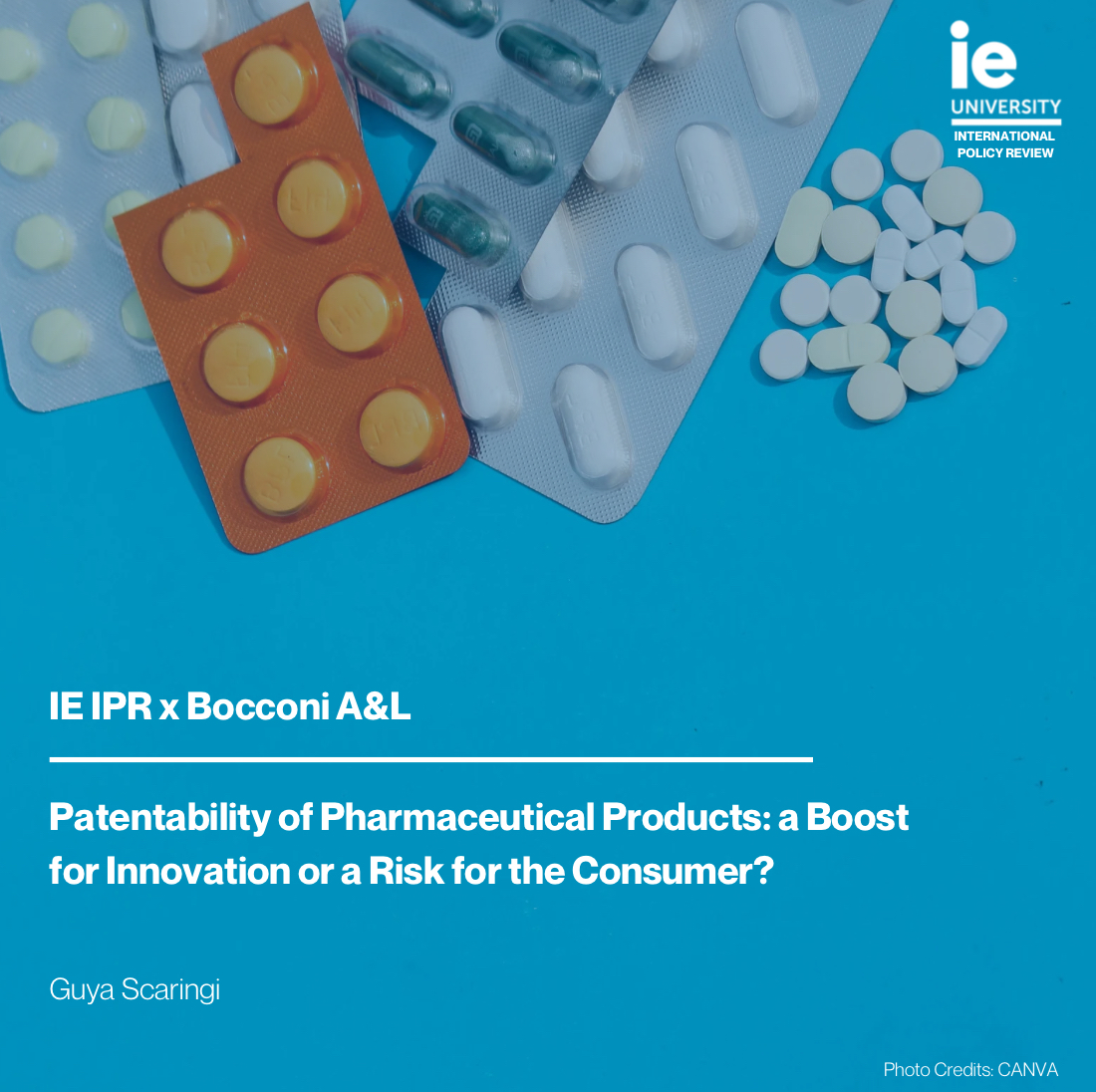
01 Jul Patentability of pharmaceutical products: a boost for innovation or a risk for the consumer?
Guya Scaringi
E-mail: guya.scaringi@studbocconi.it
Abstract
In a world where innovation is in constant growth, the pharmaceutical industry continues to be the leading one. The unceasing need for up-to-date drugs or technologies to cure old and new diseases is the reason why this sector needs an unbelievable amount of resources to invest in R&D (research and development). Even if these investments are made for a public interest, that is to cure diseases and promote collective wellbeing, legal systems need to find a reasonable protection of the investors’ economic interests. The answer relies on the institution of the patent, available for drugs and vaccines as well as many other discoveries in the field of medicine (medical treatments, second medical
use…). Not only patents have the purpose to protect the investment, but by doing that they also make the company more competitive on the market. In fact, the pharmaceutical company will have exclusive rights of production and distribution on the patented medicine for a limited amount of time, granting a de facto monopoly on the product itself. This paper will focus on the patentability of pharmaceutical products in the E.U. and U.S. legal systems, highlighting the peculiarities of each jurisdiction concerning the application filing. Moreover, the article will underline the possible risks that patents could create during a health crisis by analysing the impact of patenting of Covid-19 vaccines.
READ THE FULL ARTICLE HERE (page 60-70)
Keywords: patents, pharmaceutical products, pharmaceutical industry, competitivity on the market, Covid-19

Sorry, the comment form is closed at this time.